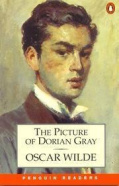Yeats on Wilde
Today marks the anniversary of the death of our great poet W.B. Yeats, a man we’ve been hearing about rather a lot recently, since 2015 marked the 150 year anniversary of his birth. I’ve decided to take this opportunity to comment on his connections to the Wilde family.

W.B. Yeats as a young man
Although Yeats knew the family well, and thought them ‘very imaginative and learned’, his retrospective commentary, on Oscar in particular, benefits from hindsight and should be treated with caution. Yet, his observations offer valuable insights into the lives of Lady Jane Wilde and Oscar Wilde in particular. Perhaps most telling of all is a remark he includes in Letters to The New Island (1934):
‘When one listens to her [Lady Jane Wilde] and remembers that Sir William Wilde was in his day a famous raconteur, one finds it no way wonderful that Oscar Wilde should be the most finished talker of our time’
He certainly thought highly of Oscar’s abilities as a raconteur, and wrote of him in The Trembling of the Veil:
‘I had never before heard a man talking in perfect sentences, as if he had written them all overnight with labour and yet all spontaneous’.
In 1887, Ward and Downey published Jane Wilde’s Ancient Legends, Mystic Charms and Superstitions of Ireland, a compendium of folk tales, several of them collected by her late husband, William while he was collecting data for the censuses of 1841 and 1851 in Ireland. This collection was praised lavishly by Yeats who referred to it liberally in his own Fairy and Folk Tales of the Irish Peasantry.

Lady Jane Wilde
This admiration prompted him to ask novelist Katharine Tynan to write him a letter of introduction to Jane; he expressed the hope that he would find her:
‘as delightful as her book …as delightful as she certainly is unconventional’.
Jane embraced him as ‘my Irish poet’ and he acknowledged that London had few better talkers. He wrote of her that she:
‘longed always perhaps, though certainly amid much self-mockery, for some impossible splendour of character and circumstance’.
In time, he would call Maud Gonne, his great love and muse, ‘The New Speranza’.
Yeats admired Oscar’s writing too. When he was compiling an anthology of Irish verse, he asked permission to include ‘Requiescat’, the poem inspired by the tragic early death of Oscar’s sister Isola. In reply, Oscar wrote:
‘I don’t know that I think ‘Requiescat’ very typical of my work’.

Undeterred, Yeats used it anyway and it was hailed as, ‘the brightest gem in this collection’. Later, he commented on Oscar’s only novel, declaring: ‘Dorian Gray, with all its faults, is a wonderful book’. He realised how astute it was of Oscar to dedicate many of his stories to society women who could further his career, and he saw through the surface conventionality of his compatriot’s plays.
‘the famous paradoxes, the rapid sketches of men and women of society, the mockery of most things under heaven, are delightful,’
he declared.
Yet he realised that the only real people in A Woman of No Importance were the villains and non-conformists, the:
‘tragic and emotional people, the people who are important to the story, Mrs. Arbuthnot, Gerald Arbuthnot, and Hester Worsley, are conventions of the stage.’

Yeats also believed that, when it came to his personal life, Oscar was constructing an elaborate facade. He recalled spending Christmas Day, 1888 with Oscar and Constance, writing:
‘I remember thinking that the perfect harmony of his [Oscar’s] life there, with his beautiful wife and his two young children, suggested some deliberate artistic composition’.
Decades after Oscar’s early death, Yeats admitted ‘of late years I have often explained Wilde to myself by his family history’. Certainly, he speculated that Oscar might have fled to safety had his mother, veteran of an earlier libel action, not declared:
‘If you stay, even if you go to prison, you will always be my son, it will make no difference to my affection, but if you go, I will never speak to you again’.
Much of the information for this post comes from: W.B. Yeats. 1922. The Trembling of the Veil. London: Werner Laurie





